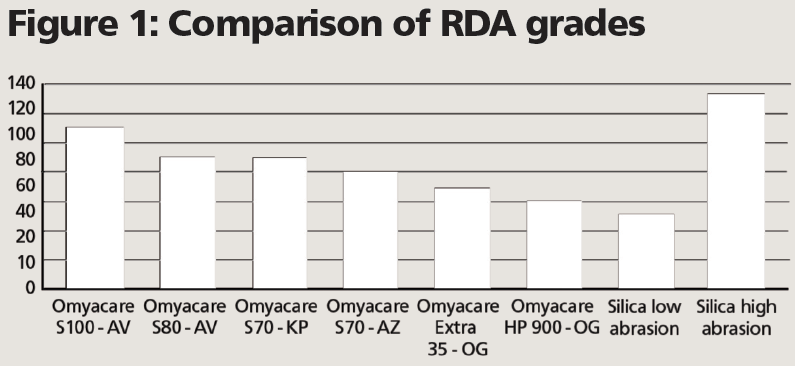Millions of years ago, when life first appeared on Earth, shells and skeletons of marine organisms settled on the ocean floors, forming rich deposits of calcium carbonate in sedimentary rocks. Fast-forward to the 21st century, and natural calcium carbonate (NCC) is now extracted from these rocks – in particular, from chalk, limestone and marble. NCC is not to be confused with precipitated calcium carbonate, which is synthetically produced by a process of precipitation.
Processing of NCC, on the other hand, is limited to grinding of the raw material and subsequent classification to defined particle size distributions. This lean production process makes NCC a very sustainable and environmentally-friendly raw material. Indeed, NCC has a carbon footprint that is three times smaller than that of precipitated calcium carbonate (PCC).

Source: Omya
Gentle Cleaning
The source determines an NCC’s cleaning properties, as well as its abrasivity: chalk being the softest variety and marble the hardest.
Depending on the raw material chosen, applications for children, sensitive teeth and tooth whitening can be achieved, with abrasivity and cleaning performance tailored accordingly. This tailoring is possible because during
